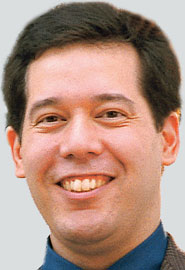Randall McNeill
|
Prof. Randall McNeill is Associate Professor in Lawrence University.
Associate Professor, Classics
Lawrence University, United States
Randall L. B. McNeill received his AB summa cum laude from Harvard University and his PhD from Yale University. He is currently Associate Professor and Chair of Classics at Lawrence University, where he teaches Latin and Greek literature and ancient history. His research focuses on techniques of self-presentation and the depiction of social relationships in Latin poetry of the late Republican and Augustan periods. He is the author of Horace: Image, Identity, and Audience(Johns Hopkins University Press, 2001) and articles on Horace, Catullus, and Classical Greek art. His past awards include a Jacob K. Javits Fellowship, a Robert M. Leylan Fellowship, and the Lawrence University Outstanding Young Teacher Award. Disparate literary figures constitute the primary focus of this study. Analysis of the choices and actions taken by these characters confirms that none of them can be considered wise participants in their communities. In each case, the character’s apparent “unwisdom" stems from his inability or unwillingness to balance personal desires with civic responsibilities, or allow for the adequate expression of both. All four characters thus serve as negative reflections of the traditional Greek conception of wisdom as being grounded in sophrosyne, a combination of moderation and self-knowledge. Future research questions include the role of empathy in determining an individual’s capacity for positive civic engagement as well as the overall societal health of a given community.
Randall has considered how wisdom pertains to the way in which an individual interacts with his or her surrounding society.
Source: Center for Practical Wisdom, University of Chicago
